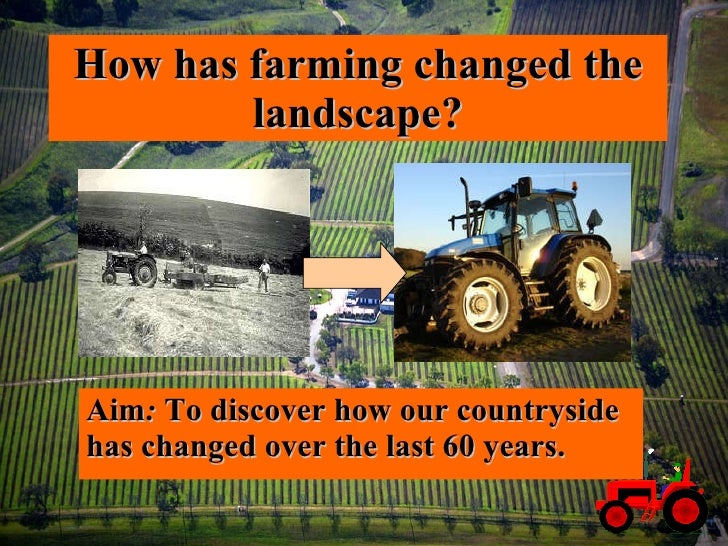Discover How Farming Has Evolved Rapidly Today

Imagine a world where farms are not just fields of crops but hubs of technological innovation. A place where the scent of fresh earth mingles with the hum of drones overhead. Welcome to the future of agriculture, where the evolution of farming is changing the way we grow our food. This transformation has been nothing short of revolutionary, blending tradition with cutting-edge technology in agriculture to pave the way for a sustainable future.
Understanding the Evolution of Farming
The Traditional Farming Past
For centuries, farming techniques today were simple yet labor-intensive. Farmers relied on the rhythms of nature and their own muscle power. Plowing fields, sowing seeds, and harvesting crops were all done manually. This traditional way of life was deeply connected to the land but often resulted in lower yields and greater susceptibility to environmental challenges.
The Modern Farming Present
So, how has farming changed? The answer lies in the remarkable innovations in farming. Today, technology in agriculture is transforming farmlands into high-tech operations. From precision farming, where GPS-guided tractors ensure optimal planting and harvesting, to the use of drones for crop monitoring, the shift is seismic. These advancements not only increase productivity but also enhance agricultural sustainability, ensuring that we can feed a growing population without depleting our resources.
The Role of Technology in Agriculture
Precision Agriculture
One of the most significant changes is the advent of precision agriculture. This approach uses data analytics and sensors to monitor soil conditions, weather patterns, and plant health in real-time. Farmers can now make informed decisions based on precise data, reducing waste and increasing efficiency. It's like having a personal assistant that keeps you updated on every aspect of your farm, ensuring nothing slips through the cracks.
Agricultural Drones
Drones are another game-changer. These unmanned aerial vehicles can survey vast areas of farmland quickly and efficiently, identifying potential issues before they become major problems. From detecting pests to assessing soil moisture, drones provide a bird's-eye view that was unimaginable a few decades ago. Imagine being able to shoot video of your entire farm, and it alerts you to a problem? That’s the power in the palm of your hand.
Artificial Intelligence and Machine Learning
Artificial intelligence (AI) and machine learning are revolutionizing farming techniques today. These technologies can analyze vast amounts of data to predict weather patterns, optimal planting times, and even the best breeds of livestock. It's like having a fortune-teller who can look into the future and tell you exactly what your crops need. In a way, the farmer is now the captain of a high-tech spaceship, navigating the cosmos of crop cultivation with precision and foresight.
The Drive Towards Agricultural Sustainability
With a Greener Future in Mind
The rise of innovative farming techniques is not just about increasing yields; it's also about ensuring agricultural sustainability. Sustainability in farming means using practices that protect the environment while providing for future generations. Techniques such as regenerative agriculture, which focuses on rebuilding soil health and reducing carbon emissions, are gaining traction. Think of it as planting a tree for the future, ensuring that the land remains fertile and productive for years to come.
Challenges and Solutions
However, this evolution is not without its challenges. Climate change, water scarcity, and soil degradation are significant threats to modern farming. But with innovation comes resilience. Technologies like vertical farming, which allows crops to be grown in stacked layers indoors, are solving these issues by using less water and land. It's like building a skyscraper for tomatoes, where every floor is a lush garden.
The Future of Farming
What Lies Ahead?
So, what does the future hold for farming? The possibilities are endless. Biotechnology is developing crops that are resistant to pests and diseases, reducing the need for harmful chemicals. Genetically modified organisms (GMOs) may also play a role in producing more abundant and nutritious food. But remember, the future is not about replacing tradition; it's about enhancing it. The old-world charm of farming will always remain, but with a new-age twist.
Your Role in the Evolution
As consumers and future farmers, you have a role to play in this evolution. Supporting sustainable farming practices, embracing technological advancements, and staying informed about the latest innovations can help drive this transformation. It's like being part of a global team, working together to create a greener, more sustainable future.
From traditional plows to precision agriculture, the evolution of farming has been extraordinary. The integration of technology in agriculture, the focus on agricultural sustainability, and the drive toward innovative farming techniques are reshaping the way we grow our food. As we continue to advance, let's remember to honor the past while embracing the future. Click here to learn more about the latest innovations in farming and how you can be a part of this exciting journey.
FAQs
- What are the most significant changes in farming techniques today?
The most significant changes include the use of precision agriculture, drones, and artificial intelligence to enhance efficiency and sustainability.
- How does technology in agriculture improve yields?
Technology in agriculture uses data analytics and sensors to provide real-time information, allowing farmers to make informed decisions and optimize their operations.
- What is precision agriculture, and how does it work?
Precision agriculture uses GPS-guided tractors and sensors to monitor soil conditions, weather patterns, and plant health, enabling farmers to manage their crops more effectively.
- How does vertical farming contribute to agricultural sustainability?
Vertical farming reduces the need for land and water by growing crops in stacked layers indoors, making it a more sustainable option for urban environments.
- What role does biotechnology play in modern farming?
Biotechnology develops crops that are resistant to pests and diseases, reducing the need for harmful chemicals and increasing productivity and nutritional value.
0 Response to " Discover How Farming Has Evolved Rapidly Today"
Post a Comment